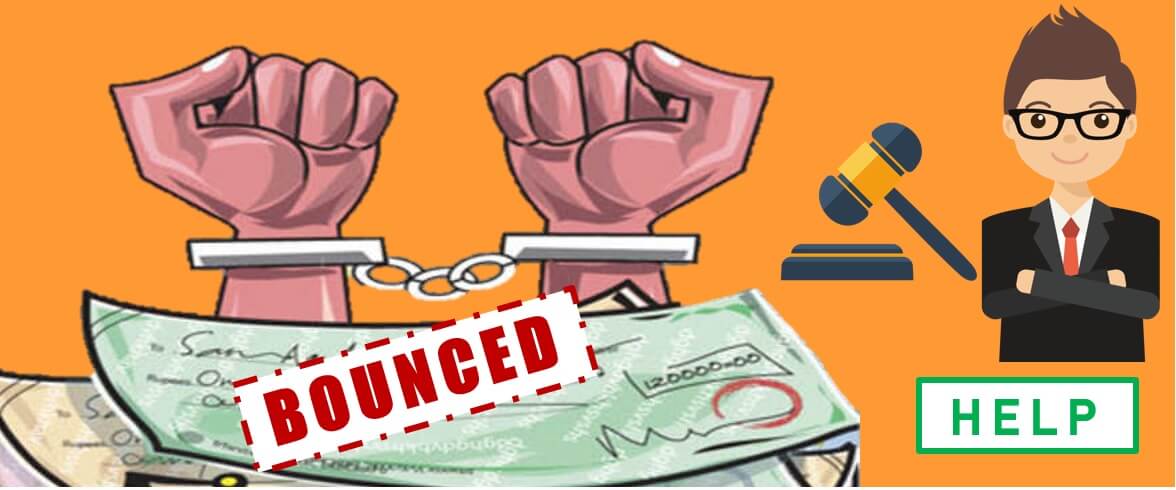
A “bounced cheque” is the one which is dishonoured by the recipient bank due to various reasons listed for the dishonour of the cheque. A Cheque Bounce or dishonor of cheque is a serious offense punishable with fine or imprisonment or both under Section 138 of the Negotiable Instruments Act.
An expert lawyer will help you with:
- Plan of Action
- Timely notice filing and dispatching
- Preparation of Documents
- Case Preparation Guide
- Trials and Hearings
Sumbit a query to get Legal Help on Cheque Bounce
When the cheque is presented for the payment in the bank but is not paid due to some reasons, such non-payment of cheque is known as dishonour or cheque bounce. A cheque bounce is governed by the Section 138 of the Negotiable instruments Act, 1881. In Cheque Bounce case, you have to adhere to the timelines to be able to recover the money. Here is the plan of Action
- Step 1: Demand Notice bounced cheque issuer
You need to send the Demand Notice to the person who has issued you a bounced cheque. The notice must be sent within 30 days from the date of bouncing of the cheque. The person will have 15 days to respond to the notice - Step 2: Filing Legal Complaint in Court
After the completion of said 15 days, if the opposite party does not settle the matter or ignores the notice, then the holder of the cheque may file a criminal complaint before the appropriate court within 30 days of the expiry of said 15 days. It is advised to hire a lawyer to help you with the process - Trial and Hearing
The Court will conduct criminal trial in the matter which will consist of verification of documents, examination of witnesses and arguments.
Documents Needed to file Cheque Bounce Case`
The general documents require to file a cheque bounce case in India are:
- Copy of the notice served to the drawer of cheque
- Proof of service of notice, i.e, courier receipt of registered post
- Original cheque on record
- Cheque return memo - A cheque return memo is a kind of notice which is send by the banker or the bank to the drawer or the issuer of the cheque to state that the said cheque have been dishonoured due to some reasons.
- Proof of existence of liability being legal
Cheque Bounce Laws in India
The dishonour of cheque has been explained under the section 138 of negotiable instruments act (NI Act), that is, when the cheque is returned as unpaid on being presented to the banker.
Criminal Remedy - is a criminal remedy available under section 420 of the Indian Penal Code of 1860 which provides for the offense of cheating and which can be filed for within the three years from the date of issuing of cheque. The remedy is not directly related to a cheque bounce but if the person can prove that the drawer has cheated on the person for such dishonour of cheque and had the dishonest intent to cheat.
- District Forum - if the value of service and compensation is less than 20 lac rupees
- State Commission - if the value of goods or services and the compensation claimed does not exceed 1 crore rupees
- National Commission - if the value of services and that of compensation asked exceeds more than 1 crore
Penalty of Cheque Bounce
According to the Negotiable Instruments Act, 1881, under section 138, issuing a bounced cheque is a criminal offence. The penalty under the section is imprisonment up to 2 years or fine up to twice the amount of cheque value or both.

